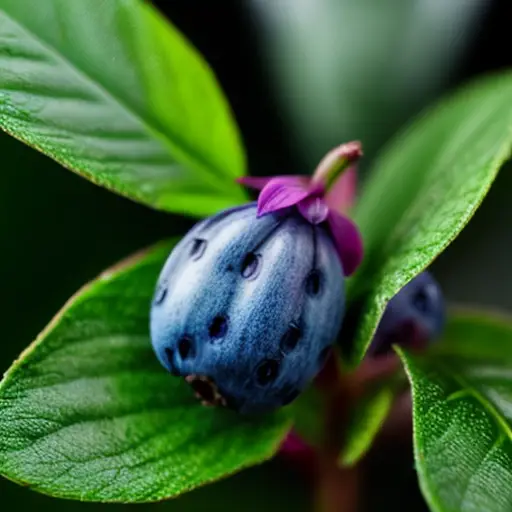Choosing the Right Blueberry Variety for Your Garden
Alright, fellow garden enthusiasts, let's dive into the delightful world of blueberries! Now, when it comes to choosing the right blueberry variety for your garden, it's like picking the perfect partner for your plant parenting journey. First things first, consider your climate and soil conditions. Blueberries have their preferences, just like us humans. Some like it hot, while others prefer a cooler vibe. Next, think about the size of your garden and the space you can dedicate to these berry beauties. Remember, blueberries like their personal space, so give them room to spread their roots. Lastly, don't forget to shower your blueberry plant with love and care. Regular watering, pruning, and a little bit of fertilizer will keep your blueberry buddy happy and thriving. So, go ahead and choose your blueberry variety wisely, and get ready to enjoy the sweet rewards of your berrylicious garden!
Planting and Establishing Your Blueberry Bushes
An interesting fact about caring for a blueberry plant is that they require acidic soil to thrive. Blueberries prefer a soil pH level between 4.5 and 5.5, which is significantly more acidic than most other garden plants. To maintain the ideal pH level, gardeners often amend the soil with organic matter such as pine needles, coffee grounds, or peat moss. This unique requirement makes blueberry plants a fascinating addition to any garden, as it demonstrates the importance of understanding the specific needs of different plant species.
Alright, my green-thumbed friends, let's talk about planting and establishing those marvelous blueberry bushes! First things first, choose a sunny spot in your garden that gets at least six hours of sunlight a day. Blueberries love soaking up those rays! Now, when it comes to soil, blueberries have a bit of a diva complex. They prefer acidic soil with a pH between 4.5 and 5.5. So, grab your trusty pH tester and make sure to give your blueberry bushes the VIP treatment they deserve. When planting, dig a hole that's twice as wide and just as deep as the root ball. Gently place your blueberry bush in the hole, backfill with soil, and give it a good drink of water. Now, here's the secret sauce: mulch! Spread a layer of mulch around the base of your blueberry bushes to keep the soil moist and prevent those pesky weeds from crashing the berry party. With a little bit of love, care, and maybe a serenade or two, your blueberry bushes will flourish and reward you with a bountiful harvest. Happy planting, my berry-loving friends!
Essential Care and Maintenance Tips for Healthy Blueberry Plants

Alright, fellow blueberry enthusiasts, let's dig into some essential care and maintenance tips to keep those blueberry plants happy and healthy! First and foremost, watering is key. Blueberries have a bit of a thirst, so make sure to keep the soil consistently moist, especially during the hot summer months. However, be careful not to overwater, as blueberries don't like having wet feet. Aim for about an inch of water per week, and adjust accordingly based on rainfall and temperature.
Next up, let's talk about fertilizing. Blueberries are like the gym rats of the plant world – they need their nutrients! Start by giving your blueberry plants a boost in early spring with a balanced fertilizer. Then, about a month later, switch to a fertilizer specifically formulated for acid-loving plants. Remember, moderation is key here. Too much fertilizer can lead to excessive growth and weak branches, so follow the instructions on the package and don't go overboard.
Now, let's address the issue of pests. Blueberries can attract some unwanted visitors, like birds and insects. To protect your precious berries, consider covering your plants with netting or using scare tactics like reflective tape or scarecrows. Additionally, keep an eye out for any signs of pests or diseases, such as leaf spots or wilting. If you spot any issues, take action promptly by removing affected leaves or using organic pest control methods.
Pruning is another crucial aspect of blueberry plant care. In late winter or early spring, before new growth begins, prune away any dead or damaged branches. This will promote airflow and prevent the spread of diseases. Additionally, thin out some of the older branches to encourage new growth and maintain a healthy shape for your blueberry plant.
Last but not least, don't forget to give your blueberry plants some love and attention throughout the year. Regularly check for weeds and remove them promptly, as they can compete with your blueberry plants for nutrients and water. And, of course, keep an eye out for any signs of stress or nutrient deficiencies, such as yellowing leaves or stunted growth. With a little bit of care and maintenance, your blueberry plants will reward you with a bountiful harvest of delicious, juicy berries. Happy gardening, my berry-loving friends!
Troubleshooting Common Issues and Pests in Blueberry Cultivation
A fun fact about caring for a blueberry plant is that they love to have a 'mulch party'! Blueberry plants thrive when you provide them with a thick layer of organic mulch, such as wood chips or pine needles, around their base. Not only does this help to retain moisture and suppress weeds, but it also creates a cozy environment for beneficial insects like earthworms. So, by throwing a mulch party for your blueberry plant, you're not only keeping it happy but also inviting some cool guests to the party!
Let's tackle those pesky issues and pests that can sometimes plague our beloved blueberry plants. One common problem is nutrient deficiencies, which can manifest as yellowing leaves or stunted growth. To combat this, make sure your blueberry plants are getting the right balance of nutrients by regularly fertilizing with a fertilizer formulated for acid-loving plants. Another common issue is fungal diseases, such as powdery mildew or botrytis blight. To prevent these diseases, ensure proper airflow by pruning your blueberry plants and removing any dead or diseased branches. Additionally, consider applying a fungicide as a preventive measure. As for pests, birds can be a major threat to your precious berries. Protect your harvest by using netting or scare tactics to deter them. Keep an eye out for other common pests like aphids or spider mites, and address them promptly with organic pest control methods if necessary. With a little bit of vigilance and proactive care, you can keep your blueberry plants thriving and free from common issues and pests. Happy gardening, my berry-loving friends!


